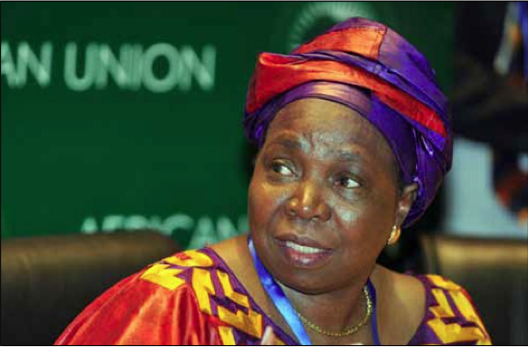African leaders unite to tackle continent’s problems
African leaders unite to tackle continent’s problems sadminInternational relations
African leaders have agreed to respond decisively to the conflicts ravaging the continent at the 20th African Union (AU) Summit held in Addis Ababa, Ethiopia, recently.
 The summit brought together 36 heads of state under the theme: ‘Pan-African- ism and the African Renaissance, a call for greater integration among states and a celebration of the continent’s rapid economic growth’.
The summit brought together 36 heads of state under the theme: ‘Pan-African- ism and the African Renaissance, a call for greater integration among states and a celebration of the continent’s rapid economic growth’.
The most urgent item on the agenda was the political crisis in Mali, where rebels took over parts of the country in early 2012. Further political turmoil later in the year and an offensive by the Islamic militants lead to the Malian government requesting other countries to intervene.
African leaders welcomed the deployment of some 2 500 special forces from France and nearly 2 000 African soldiers to battle Islamic militants in an effort to stabilise the country.
The leaders agreed to contribute R708.8 million, nearly 10 per cent of the total budget required to fund the peacekeeping mission in Mali.
Participating countries also promised to contribute a total of R4 billion, with further pledges of technical assistance, training and energy needs.
For its part, South Africa pledged the R88.4 million.
Despite their unity when it came to issues related to Mali, AU leaders were unable to make similar breakthroughs regarding problems between Sudan and South Sudan and in the eastern Democratic Republic of Congo (DRC). Chairperson of the AU Commission Dr Nkosazana Dlamini Zuma said the AU must do more to address conflict situations in Somalia, Guinea-Bissau, eastern DRC, Central African Republic, Darfur, Comoros, Sudan, South Sudan, Madagascar, Western Sahara and more recently, Mali and the Sahel.
“While we are proud of the progress made in expanding and consolidating peace and security on the continent, we also acknowledge that a lot is still desired to resolve ongoing, renewed and new conflicts in some African countries,” she stressed.
Dlamini Zuma said the AU would oppose all unconstitutional change of governments on the continent.
“We must enhance our capacity to defend democratically-elected governments and their territorial integrity, we need to accelerate the operationalisation of the African Standby Force for quick response capacity,” she said.
The summit also highlighted the continent’s economic progress.
Dlamini Zuma said she saw a brighter future for the continent based on the achievements made in the past decade.
She cited economic growth surpassing 10 per cent annually in some countries as an indication that the continent was indeed on a growth trajectory.
The discovery of new wealth, like oil and gas, would also help the continent generate new revenue.
During the summit, South Africa received the African Leaders Malaria Alliance Award for its progress in combating malaria. President Jacob Zuma said South Africa plans to eliminate the spread of malaria within its borders by 2018.
He also promised that South Africa would do everything in its power to prevent the deaths of mothers and children during childbirth at the high level meeting of the Campaign for Accelerated Reduction of Maternal Mortality in Africa (CARMMA).
“South Africa is committed to doing every- thing we can to decrease maternal and child mortality and to improve the lives of women and children, both in our country and on the continent,” he said.
The CARMMA aims to reduce the number of women who die as a result of childbearing, during pregnancy or within 42 days of delivery or termination of pregnancy.
Part of South Africa’s interventions, President Zuma said, would include strengthening family planning, especially among teenagers who contribute up to 36 per cent of maternal deaths even though they make up only eight per cent of the total number of pregnancies.
Other interventions include eliminating mother to child HIV transmission, strengthening maternity services by deploying dedicated obstetric ambulances to transport women in labour to the nearest appropriate health facility, training doctors and nurses working in maternity units on essential steps in managing child birth emergencies, training more midwives and advanced midwives and expanding immunisation coverage.
The 20th AU Summit coincided with several anniversaries and milestones.
It was the 50th since the founding of its forerunner, the Organisation of African Unity. It was also the first to be presided over by the AU Commission’s new chair – South Africa’s former Home Affairs Minister Dlamini Zuma, making it the first time a woman presided as chairperson over the gathering of Africa’s predominantly male heads of state.